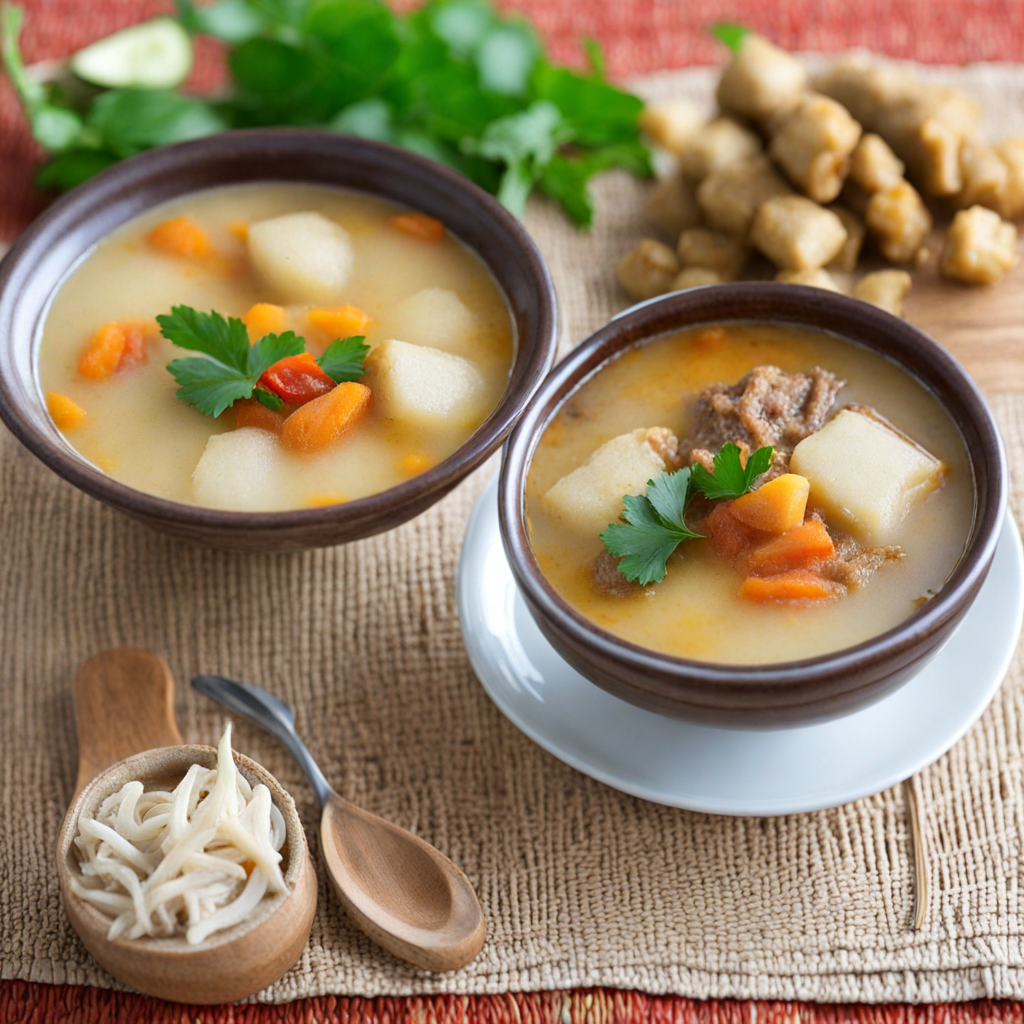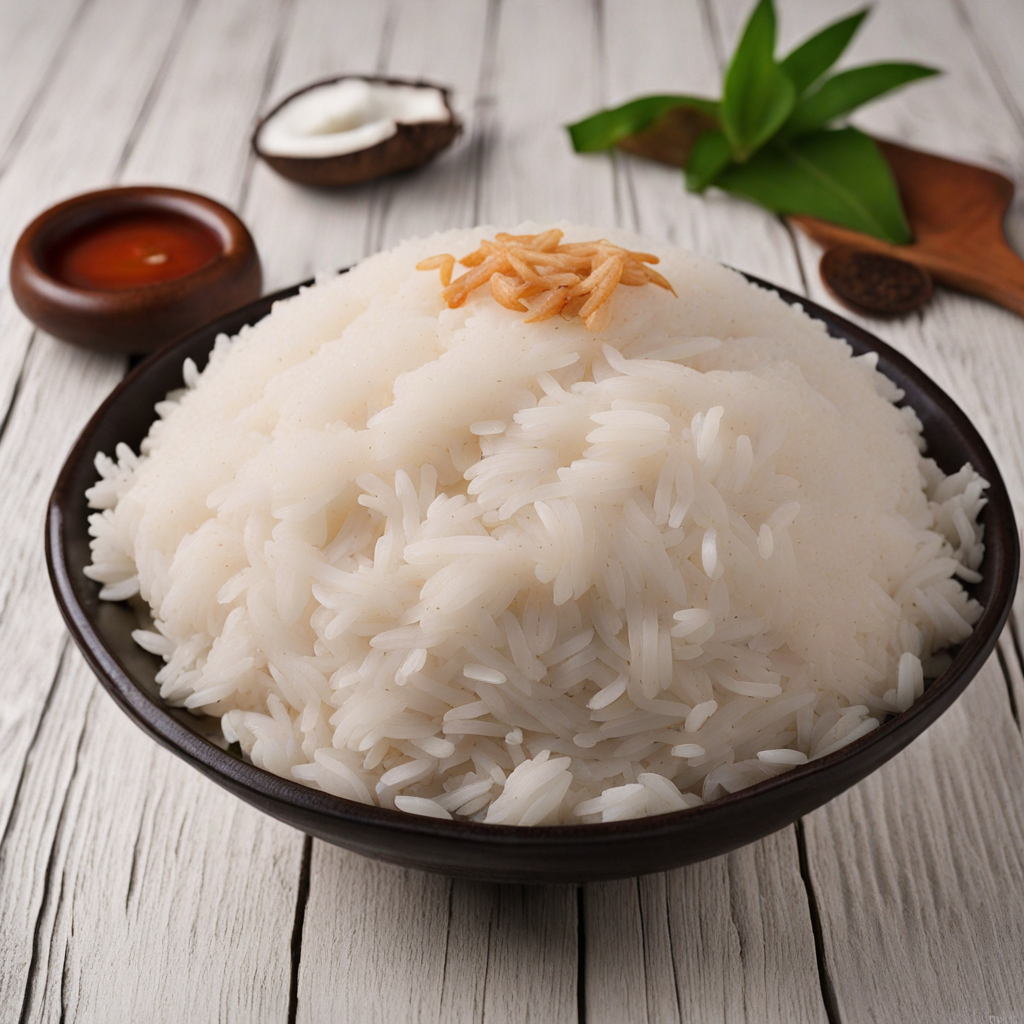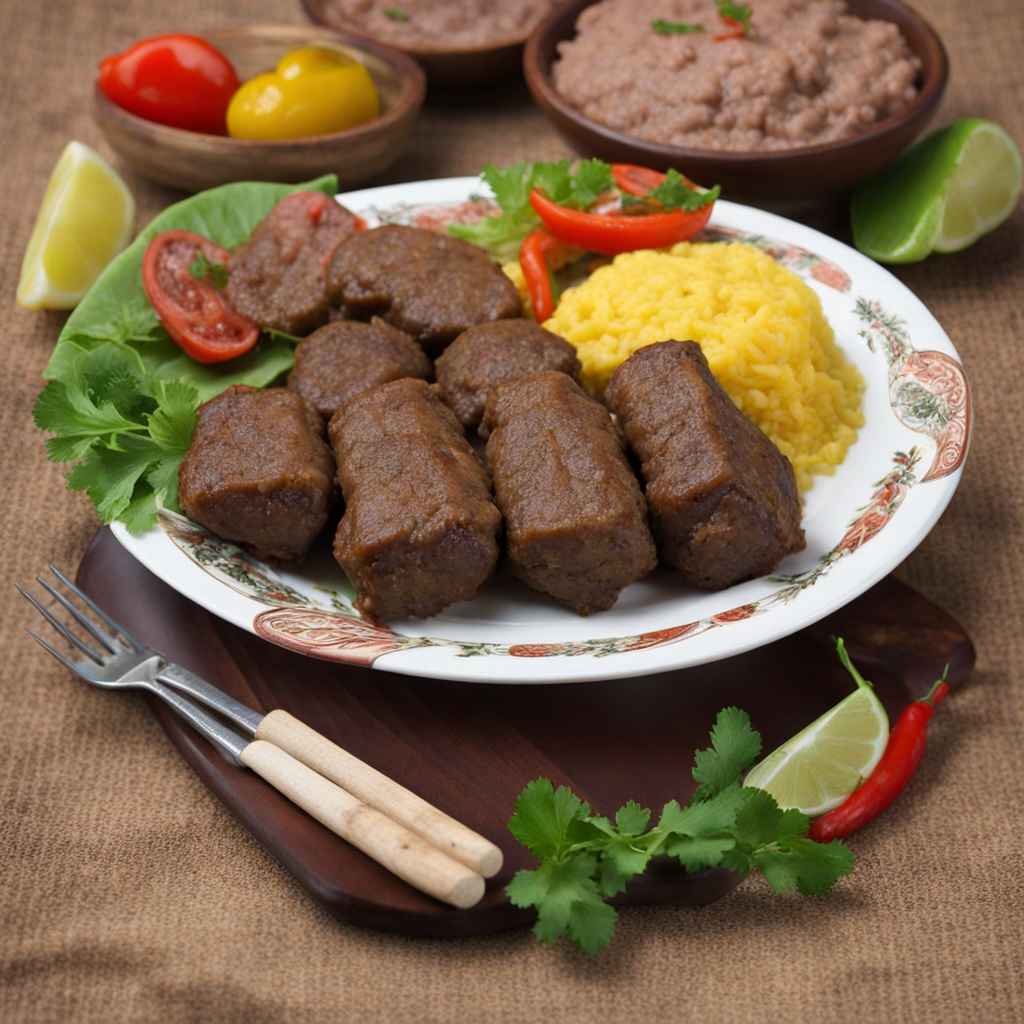Eksi Koekoe
Eksi Koekoe is a delightful Surinamese dish that beautifully captures the essence of the country's rich culinary heritage. At its core, Eksi Koekoe is a savory pancake made from a unique blend of ingredients, primarily featuring rice flour and coconut milk. This harmonious combination results in a light and slightly chewy texture that is both satisfying and comforting. The pancake is often infused with natural flavors from spices and herbs, giving it a distinctive taste that sets it apart from other similar dishes found around the world. What makes Eksi Koekoe truly special is its versatility. It can be served in various ways, often accompanied by a range of fillings or toppings that enhance its flavor profile. Common additions include spiced meats, vegetables, or even sweet ingredients like fruits and syrups, allowing for a delightful contrast of tastes. This adaptability makes Eksi Koekoe a popular choice for meals at any time of the day, whether enjoyed as a hearty breakfast, a satisfying lunch, or a delightful snack. The experience of tasting Eksi Koekoe is not just about the food; it’s about enjoying the vibrant culture of Suriname. As you take a bite, you’ll notice the subtle sweetness from the coconut milk balancing with the savory elements, creating a delightful symphony of flavors. Often enjoyed at gatherings or family meals, this dish embodies the warmth and hospitality of Surinamese culture, inviting you to savor each bite while exploring the unique culinary landscape of this beautiful country.
How It Became This Dish
Eksi Koekoe: A Culinary Journey Through Suriname #### Origins Eksi Koekoe, often referred to simply as "Koekoe," is a traditional dish hailing from Suriname, a small South American country known for its rich tapestry of cultures, ethnicities, and culinary traditions. The dish is a type of savory cake or pudding made primarily from cassava, a starchy root vegetable that has been a staple in the diets of indigenous peoples long before the arrival of European colonizers. Cassava is native to South America and was cultivated by indigenous tribes such as the Arawaks and Caribs. The introduction of cassava to European diets occurred during the Columbian Exchange, which facilitated the movement of crops between the New World and the Old World. However, it is in Suriname, with its unique blend of cultures, that cassava has found a distinctive culinary expression through Eksi Koekoe. The term "Eksi" translates to "sour" in Sranan Tongo, the lingua franca of Suriname, while "Koekoe" refers to a cake or pudding. Eksi Koekoe is characterized by its sour flavor, which comes from the fermentation of cassava. This unique preparation method links the dish to both indigenous practices and the African culinary traditions brought to Suriname by enslaved peoples. #### Cultural Significance Eksi Koekoe is far more than just a dish; it embodies the resilience and adaptability of Suriname's diverse population. Suriname's history is marked by the mingling of several cultures, including Indigenous, African, Dutch, Indian, Chinese, and Javanese influences. Each of these groups has contributed to the culinary landscape of the country, making it a melting pot of flavors, techniques, and ingredients. For many Surinamese, Eksi Koekoe is a comfort food, often prepared for special occasions, family gatherings, and traditional ceremonies. Its sour flavor profile is not only pleasing to the palate but also serves as a reminder of the resourcefulness of communities who have used what is available to create nourishing meals. The fermentation process is crucial, as it not only enhances the flavor but also preserves the cassava, allowing it to be stored for longer periods. Moreover, Eksi Koekoe has become a symbol of Suriname's national identity. As the country navigated its post-colonial era, the dish emerged as a representation of cultural pride and continuity. It is often featured in local festivals and celebrations, where it is shared among family and friends, reinforcing the bonds of community. #### Development Over Time The evolution of Eksi Koekoe reflects broader changes in Surinamese society. Initially rooted in indigenous practices, the dish was a simple preparation of fermented cassava, often enjoyed in households as a staple food. The introduction of various spices, herbs, and additional ingredients by African, Indian, and Javanese immigrants gradually enriched the recipe, leading to a more complex flavor profile and texture. During the late 19th and early 20th centuries, as Suriname became a melting pot of cultures, Eksi Koekoe began to evolve further. The African legacy, in particular, brought in techniques of seasoning and flavoring, which transformed the dish into a more elaborate and festive offering. Local ingredients such as coconut milk, onions, and peppers started to make their way into the preparation, adding layers of flavor and texture. In the mid-20th century, with the rise of nationalism and a renewed interest in cultural heritage, there was a resurgence in traditional Surinamese cuisine. Eksi Koekoe became a focal point for culinary preservation, with families passing down recipes from generation to generation. This period also saw the emergence of food stalls and local restaurants that proudly served traditional dishes, helping to popularize Eksi Koekoe not just among locals but also among tourists. In recent years, the globalization of food culture has led to a reimagining of Eksi Koekoe. Chefs and home cooks alike have begun to experiment with the traditional recipe, incorporating modern cooking techniques and fusion elements. While some still adhere strictly to ancestral methods, others are creating innovative spins that reflect contemporary tastes and dining experiences. This evolution has sparked interest in Eksi Koekoe beyond Suriname's borders, allowing it to garner attention in international culinary circles. #### Conclusion Today, Eksi Koekoe stands as a testament to Suriname's rich cultural heritage and the adaptability of its people. It is a dish that encapsulates the history of a nation, conveying stories of survival, community, and resilience. Whether enjoyed at a family gathering, a local festival, or at a restaurant serving traditional Surinamese cuisine, Eksi Koekoe remains a cherished symbol of identity, continuity, and culinary pride. As Suriname continues to navigate its path in the modern world, Eksi Koekoe will undoubtedly evolve further, yet its essence will always be rooted in the rich soil of its past. This savory cake, born of indigenous ingenuity and shaped by diverse cultural influences, is a reminder that food is not merely sustenance but a powerful connector of people, history, and identity.
You may like
Discover local flavors from Suriname







